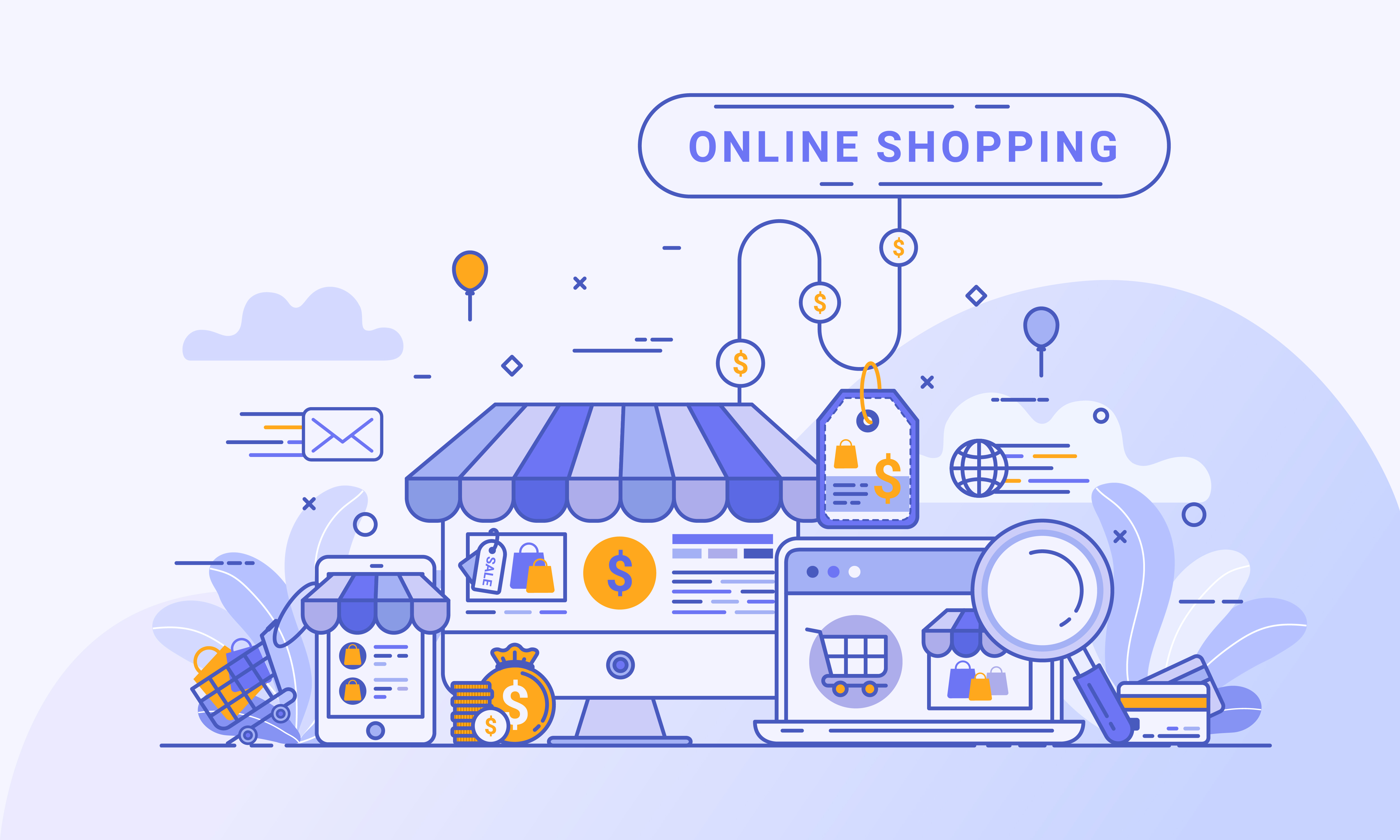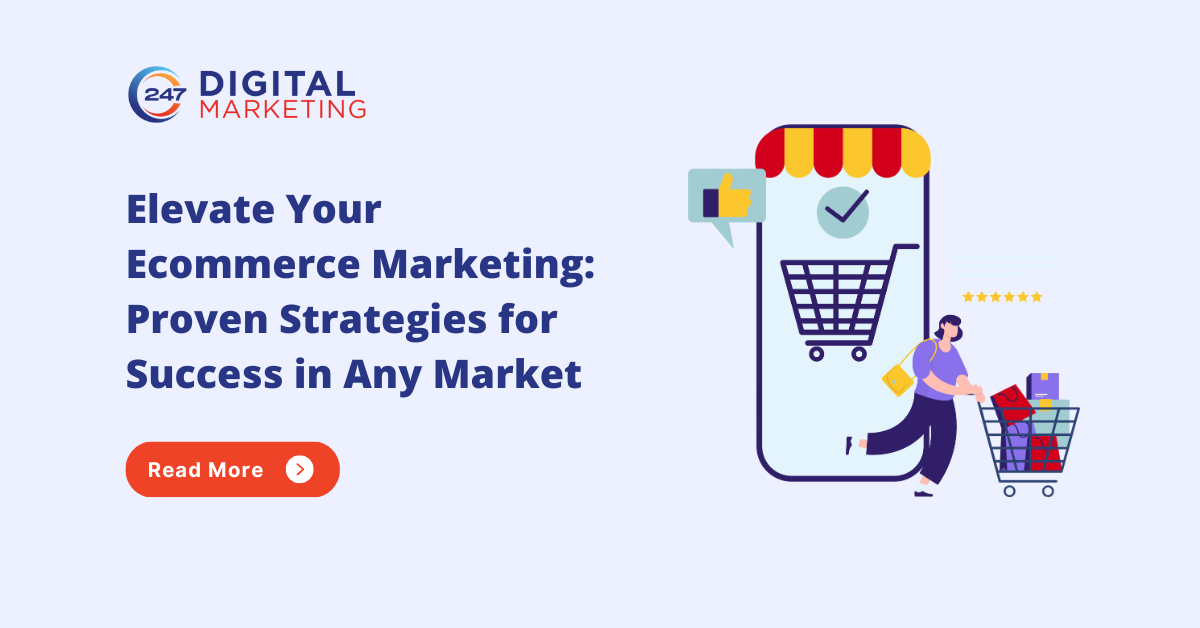How Shopify Simplifies E-commerce for Small Businesses?

Strong 8k brings an ultra-HD IPTV experience to your living room and your pocket.
In today’s fast-paced, digital-first world, e-commerce has become a dominant force in the retail sector. Small businesses, in particular, have greatly benefited from the ability to sell their products online, reaching customers far beyond their local areas. However, launching and managing an online store can be daunting for small business owners who may lack the technical expertise or financial resources of larger enterprises. That’s where platforms like Shopify come into play. Shopify is a robust, user-friendly e-commerce platform that simplifies online store management for small businesses, helping them grow and succeed in the competitive world of e-commerce.
This article will explore how Shopify simplifies e-commerce for small businesses, covering everything from store setup and product management to payment processing, marketing, and customer support.
In what ways Shopify Simplifies E-commerce for Small Businesses?
1. Easy Setup and User-Friendly Interface
One of the primary reasons Shopify is so popular among small business owners is its simplicity. Shopify is designed to be easy to use, even for those without any technical background. Setting up an online store on Shopify is straightforward. The platform provides a user-friendly interface with drag-and-drop tools that allow users to customize their store’s design, layout, and structure without writing a single line of code.
Shopify offers a range of professionally designed templates that can be customized to match a business’s brand identity. These themes are responsive, meaning they automatically adjust to fit different screen sizes, ensuring an optimal shopping experience on desktops, tablets, and mobile devices. The ease of setup means that small business owners can focus on what they do best – creating great products – without worrying about the technical side of running an online store.
2. Affordable Pricing Plans
Pricing is always a major consideration for small businesses, and Shopify offers a range of affordable pricing plans to cater to different needs and budgets. Shopify's plans are designed to grow with your business, starting with a basic plan for startups and scaling up to more advanced options as the business expands.
The basic Shopify plan is perfect for new businesses or small operations that are just getting started. It provides all the essential features needed to run an online store, and the ability to sell an unlimited number of products. As businesses grow, they can easily upgrade to higher-tier plans that offer additional features such as more advanced reporting tools, reduced transaction fees, and the ability to manage multiple staff accounts.
This flexibility in pricing allows small businesses to start small and scale at their own pace, which is ideal for those with limited budgets who don’t want to overcommit to expensive plans or unnecessary features.
3. Comprehensive Product Management
Managing inventory and products can be time-consuming and complex for small business owners, but Shopify makes it easy. With Shopify, you can add products, categorize them, set prices, and manage stock levels with just a few clicks. The platform allows for detailed product descriptions, multiple images, and variations such as size, color, and style, enabling customers to view the products exactly as they would in a physical store.
Shopify also provides inventory tracking tools that automatically update stock levels when a sale is made, helping businesses avoid overselling or running out of stock. For businesses that sell across multiple platforms, Shopify integrates with various marketplaces, allowing for centralized inventory management.
Additionally, Shopify’s bulk product import tools simplify the process of adding a large number of products at once. Small business owners can upload their product listings in bulk, saving time and effort.
4. Secure Payment Processing
One of the biggest concerns for any online store is payment security. Shopify offers a secure payment gateway called Shopify Payments, which is integrated directly into the platform, making it simple for small business owners to accept payments from customers. Shopify Payments supports multiple payment methods, ensuring that businesses can cater to a wide variety of customer preferences.
For international sellers, Shopify Payments also supports multiple currencies, which makes it easier for small businesses to reach a global customer base. The platform automatically handles currency conversion, so businesses don’t need to worry about dealing with complex exchange rates or foreign payment processors.
Shopify also complies with PCI-DSS (Payment Card Industry Data Security Standard), ensuring that customer payment information is processed securely. This built-in security helps businesses gain customer trust and reduces the risk of fraud or data breaches.
5. Efficient Shipping and Fulfillment
Shipping is a critical aspect of e-commerce, and Shopify simplifies the entire process for small businesses. Shopify offers integrated shipping tools that allow businesses to generate shipping labels, track orders, and calculate real-time shipping rates directly within the platform.
Small business owners can choose from a variety of shipping options, including standard, expedited, and international shipping. For businesses that need additional help with fulfillment, Shopify offers fulfillment services through its Shopify Fulfillment Network (SFN). This service stores and ships products on behalf of small businesses, allowing them to focus on growing their brand while Shopify handles the logistics.
Additionally, Shopify allows for flexible shipping options, including offering free shipping or flat-rate shipping, which can help improve customer satisfaction and increase conversions.
6. Mobile Optimization
With the increasing number of people shopping on mobile devices, it’s essential for small businesses to ensure their online stores are mobile-friendly. Shopify’s responsive design ensures that your online store looks great on smartphones and tablets, providing an optimal shopping experience for customers on any device.
Shopify also offers a mobile app that allows business owners to manage their store on the go. With the mobile app, users can view orders, track inventory, and even communicate with customers, all from their smartphones. This level of mobility gives small business owners the flexibility to manage their business from anywhere, without being tied to a desktop computer.
7. Built-in Marketing Tools
Effective marketing is essential for driving traffic to an e-commerce site, but many small business owners lack the time or expertise to run sophisticated marketing campaigns. Shopify makes it easy for small businesses to market their products using a suite of built-in tools and integrations.
Shopify offers built-in email marketing tools that allow businesses to create and send professional email campaigns to their customers. The platform also has powerful search engine optimization features that help businesses improve their search engine rankings, including customizable meta tags, optimized URL structures, and automatic sitemaps.
Additionally, Shopify integrates with popular social media platforms like Facebook, Instagram, and Pinterest, allowing businesses to sell directly through these channels. Shopify’s social media integrations make it easier to reach a larger audience, run paid advertising campaigns, and drive more sales through social media platforms.
Shopify also supports a wide range of third-party apps that enhance marketing efforts, from automated email marketing tools to loyalty programs and referral systems. The app store allows businesses to find the right marketing tools to suit their needs and budget.
8. Customer Support and Resources
Shopify understands that small business owners often wear many hats, and that running an online store can be challenging. That’s why Shopify provides 24/7 customer support via live chat, email, and phone. Whether you need help setting up your store, troubleshooting technical issues, or resolving payment problems, Shopify’s support team is available around the clock to assist you.
In addition to live support, Shopify also offers a wealth of resources to help small business owners succeed. The Shopify Academy provides free online courses and tutorials on everything from store setup to digital marketing. Shopify’s Help Center offers an extensive library of articles, FAQs, and troubleshooting guides to help users find solutions to common problems.
For businesses that prefer to learn through community interaction, Shopify has an active online community where business owners can share experiences, ask questions, and get advice from fellow entrepreneurs.
9. Scalability and Growth
As small businesses grow, they need a platform that can scale with them. Shopify is highly scalable, meaning that businesses can start small and upgrade to more advanced features as their needs evolve. Whether you’re a solopreneur selling a handful of products or a rapidly growing company with a large inventory, Shopify can accommodate your business at every stage of its growth.
Shopify’s extensive app ecosystem and integrations allow businesses to expand their store’s functionality with ease. As businesses grow, they can add new sales channels, manage more complex shipping options, and even implement enterprise-level solutions without having to switch platforms.
Conclusion-
Shopify has established itself as a leading e-commerce platform, offering small businesses the tools they need to succeed in the digital marketplace. From its easy setup and affordable pricing plans to its comprehensive product management, secure payment processing, and powerful marketing tools, Shopify simplifies e-commerce for small businesses by streamlining operations and reducing the complexity of online store management.
By providing an intuitive, all-in-one solution for building, managing, and growing an online store, Shopify empowers small business owners to focus on what matters most – building their brand and serving their customers. Whether you’re just starting out or looking to scale, Shopify offers the flexibility, support, and resources needed to thrive in the world of e-commerce.
Note: IndiBlogHub features both user-submitted and editorial content. We do not verify third-party contributions. Read our Disclaimer and Privacy Policyfor details.







